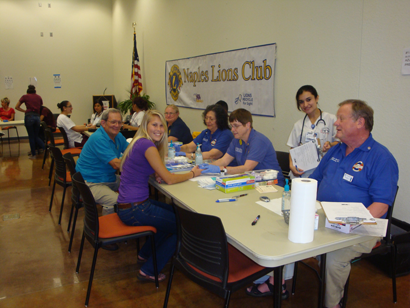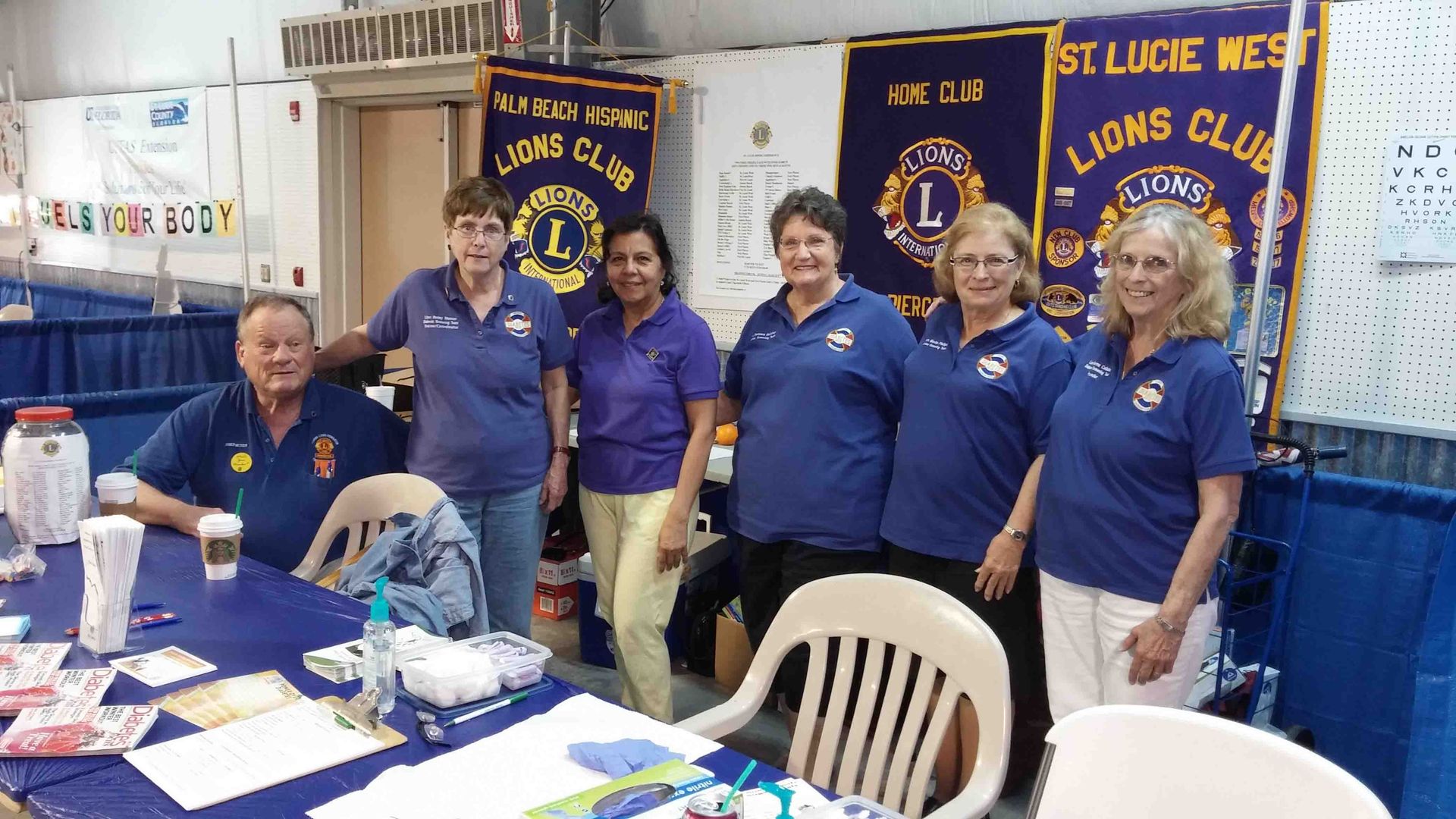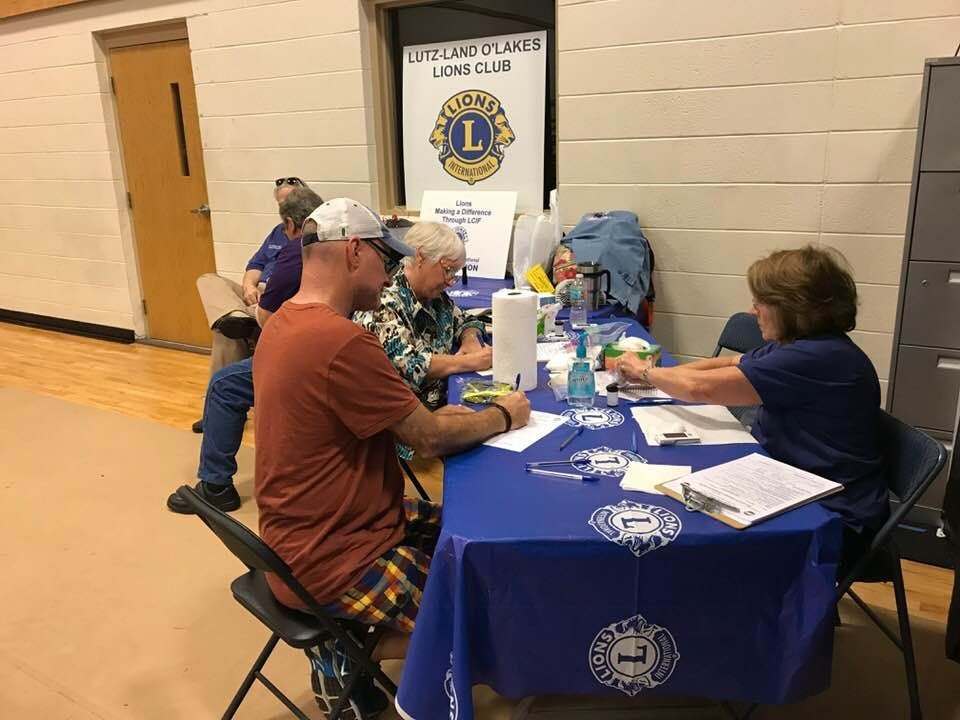
LIONS DIABETES AWARENESS FOUNDATION OF MULTIPLE DISTRICT 35
Diabetes Awareness Screenings
A screening test can detect the possibility of diabetes. Lions clubs often arrange for free diabetes screenings to be performed in their communities. To conclude that a person has diabetes would require medical testing.
Lions Organize Free Diabetes Awareness Screenings for the Public

Dr. Freedman (in white) and the Naples Lions Club Screeners

Vero Beach Lions Club at Screening at Vero Beach Farmers Market Beach side

St. Lucie County Fair Screening. Held February to March. Biggest screening in our Multiple District. Over 600 screenings.

Lutz-Land O'Lakes Screening.
Lions clubs are encouraged to partner with healthcare professionals to carry out joint diabetes screening projects as a suggested activity as well as combining a test for diabetic retinopathy with glaucoma testing whenever such an activity is undertaken. Lions adhere to the appropriate healthcare laws and regulations that are in effect for their jurisdiction when conducting healthcare screenings. Many healthcare regulations require any blood tests to be conducted by a licensed healthcare professional.
- Select a date for the screening. This date should not conflict with other community events.
- Secure a location for the screening. Schools, libraries, houses of worship, community centers or homes for the elderly are among the possible locations. Obtain legal clearance/permits from local authorities.
- Arrange for medical equipment and medical personnel. Government health departments, universities, hospitals, or private physicians often agree to perform free public screenings.
Provide advance publicity to local news outlets. Post flyers throughout the community informing the public about the date and location of the screening.
On the day of the screening, Lions can:
- Organize the screening room.
- Provide free transportation for persons who lack access.
- Assist with record-keeping functions.
After the screening, Lions can:
- Send letters of appreciation to persons involved in the screening. This includes healthcare professionals who donated time, community centers that provided a venue, and medical companies that donated equipment or supplies.
- Send a press release to local media. Include details such as the number of persons who benefited from the free public screening.
- Contact persons in the community who discovered that they may have diabetes. Provide them with information about local treatment facilities.